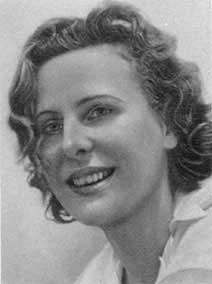Leni Riefenstahl (Leni Riefenstahl)

Motion Picture Filmmaker. Born Helene Bertha Amalie Riefenstahl, she was an actress and dancer who became a film pioneer and one of the most controversial film directors in the 20th century. Her parents, Alfred and Bertha Sherlach Riefenstahl, did not want her to become an actress, but she loved dancing, performing in Berlin, Munich, and Prague. She began her acting career as a ballerina in the films of director Arnold Fanck, during the early 1920s. A beautiful actress, she was compared to Marlene Dietrich, but she became fascinated with directing, and passed on a chance to go to Hollywood as an actress. In 1931, she formed a film company, and directed herself in “The Blue Light” (1932). This film demonstrated her talent for directing and editing. Her reputation came from her 1935 film “Triumph of the Will,” a commissioned record of the 1934 Nuremberg Nazi Party Rally. This film showcased Nazi power, emphasizing unity and superiority of the Nazis and the charisma of its leader, Adolph Hitler, and also damned her in the post-war years. The Nazis funded her next film, “Olympia” (1938), which portrayed the beauty of the Aryan physique during the 1936 Olympic Games in Berlin. She personally appeared in the film, and the Nazis often touted still photos of her from this film as being the perfect example of a German woman. In this film, she invented many of the sport film techniques used today, including slow motion, underwater diving shots, high and low shooting angles, panoramic aerial shots, and tracking fast action. In 1944, she married Major Peter Jacob, a German soldier, but they divorced in 1947, having no children. After the war, she was considered a Nazi propagandist and sympathizer, and was imprisoned for 3 years, undergoing de-Nazification. In 1954, she released the film “Tiefland,” which she had begun in 1940; it was the last picture she directed until 2002. She had plans to make other films, but her reputation as a “Nazi pin-up girl” followed her everywhere, and the film industry shunned her. She remained active the rest of her life, mostly shooting still photos. She has published several books on Africa, on photography, and on filmmaking. She also wrote a two volume autobiography entitled “Leni Riefenstahl: A Memoir” (1995). In August 2002, she released her first film since “Tiefland,” entitled “Impressions under Water” to celebrate her 100th birthday; the film details her underwater photography. (bio by: Kit and Morgan Benson) Family links: Spouse: Eugen Karl Jacob (1909 – 1992)* *Calculated relationship
Born
- August, 22, 1902
- Germany
Died
- September, 09, 2003
- Germany
Cemetery
- Waldfriedhof München
- Germany

